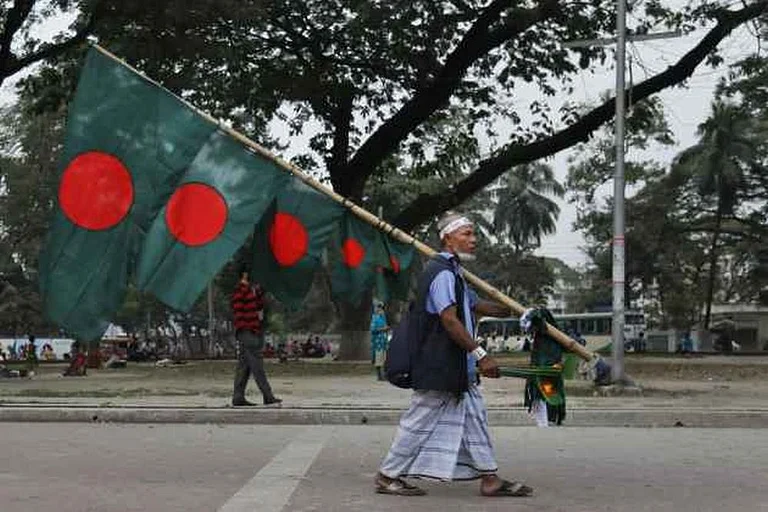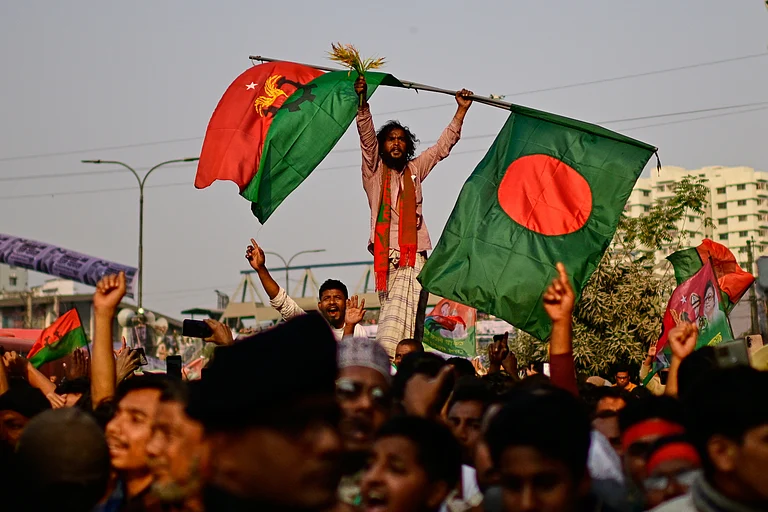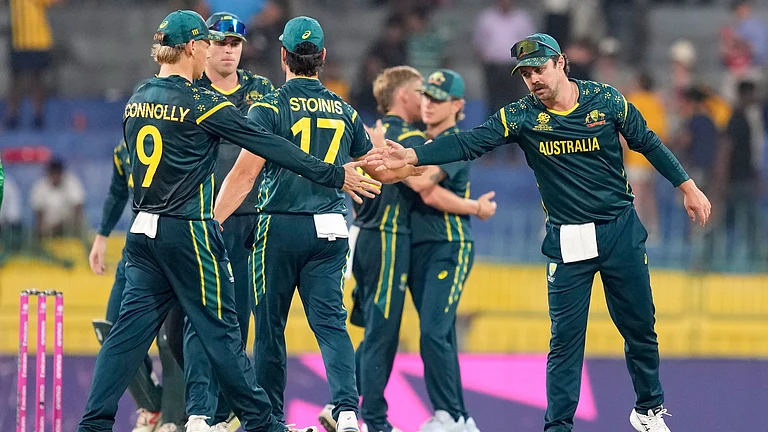True, the political irony of the BJP being jostled out from the so-called seats of saffron—Ayodhya, Mathura and Varanasi—was inescapable. True also that without an extreme event, Indian voters seemed to be saying, these are not the issues we care about. The result’s post-mortem is a work in progress—fractured mandate, alliances, anti-incumbency, and the possibility that Hindutva had bounced at the bank.
My ambivalence springs more from wondering what the word secularism would mean to the ordinary Indian, whether it still has the comfort of certainty and definition.BJP-bashers have used Verdict 2004 to close the debate. The BJP is clearly stuck in a swamp, uncertain whether the way to haul itself out is another chariot ride through history, or to walk a measured middle road.
But, has the final word been written on how the average Indian views his faith, or is secularism a script that is being quietly, but firmly, rewritten? Indians, it seems, are at a crossroad: they will not walk the path marked by milestones of religious extremism; nor will they follow the sanitised, laboratory-like faithless modernity of the liberals.
Perhaps nothing illustrated this better than one event. Was the Kanchi Shankaracharya a victim or villain; a mahatma or murderer? We don’t know yet. The BJP tried to whip up an emotional frenzy. The liberal reaction is an I-told-you-so one; an instinctive distaste for humans trying to be gods. Both sides seemed to miss the heartbeat of those who believed in the Kanchi seer and felt betrayed by the possibility that God may be a criminal. In a recent TV debate, a venerable old Tamilian said, "We may not burn buses or take to the streets, but it doesn’t mean we don’t feel anguished." To miss this pain, or to deride it, is in fact to miss the point.
Time was when, like many self-proclaimed liberals, I thought I knew exactly what secularism meant. We wore our liberal agenda on our faded kurta sleeves, and it wouldn’t have occurred to us, even as we studied the Bible in a Christian college, that religion was important. If anything, religion was retrograde, and we, basking in the warm self-image of being "progressive", scoffed at the idea that Modern India had space for believers.
It took stepping out of the liberal confines of St Stephen’s College for me to wake up to the need for reinventing secularism. Perhaps, the turning point was reporting on the Gujarat riots and unearthing the poignant connections between communities divided by bloodlines. In Vadodara’s Vadi locality, all the Muslims burnt alive were craftsmen who made bangles and bindis for the Hindu festivals of Makar Sankranti and Ganesh Pooja. In Ayodhya, the flower-sellers outside the temples that became political battlegrounds for the Hindu Right were Muslims. Later, political scientist Ashutosh Varshney would write that cities which kept alive such linkages had a history of less violence.
So, why had the liberal discourse on secularism become a dialogue of the deaf? Was it because we were embarrassed to celebrate religion? Because we failed to see religion as a builder of bridges across the great divide; because we were blind to the idea that for most in India, religion is about culture, inextricably linked to the everydayness of their lives.
Mani Shankar Aiyar’s Confessions of a Secular Fundamentalist opens with Nehru writing this to Gandhi: "It is all very well for the likes of Sapru and me to talk pompously and in a superior way of our tolerance in matters of religion, but neither of us has any religion worth talking about. "
Perhaps, that’s the point. Cast in the mould of Nehruvian liberals, have we grown up culturally rootless? Instead of pushing religion to the far end of public discourse, do we need to embrace each faith’s richness, like a tapestry woven by different shades, each distinct, but making a happy splash of colour? In a TV debate on secularism, a well-known lyricist was a guest. He came dressed in white, but later confessed that he had wanted to wear a saffron kurta, but thought it may send a wrong message. "Wasn’t he letting extremists appropriate all Hindu symbols?" I argued.
Prabhash Joshi, who isn’t scared to call himself a Believing Hindu, got it right when he wrote that if you talk to the Indian Hindu about the maryada, the compassion of Lord Rama, he’ll understand your language in a heartbeat. He will, then, be the first to say that trishul-wielding maniacs do not speak for him or his religion. It’s time to face the faith and reclaim the middle ground before it swerves right again.
(Host of the award-winning We, the People, Barkha Dutt is Senior Editor, NDTV. The views here are her own.)

























